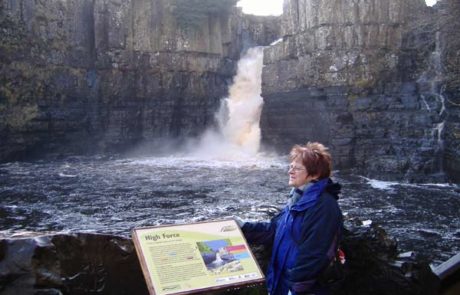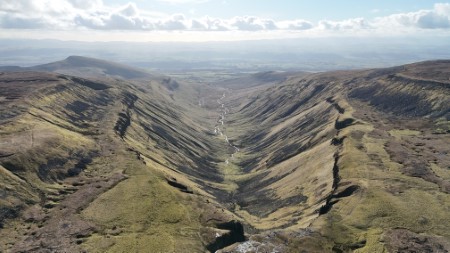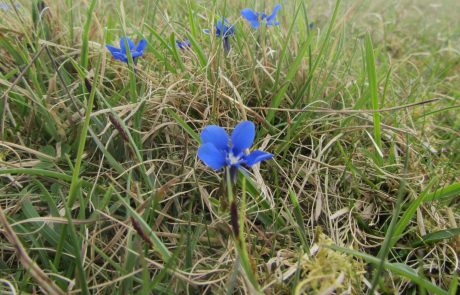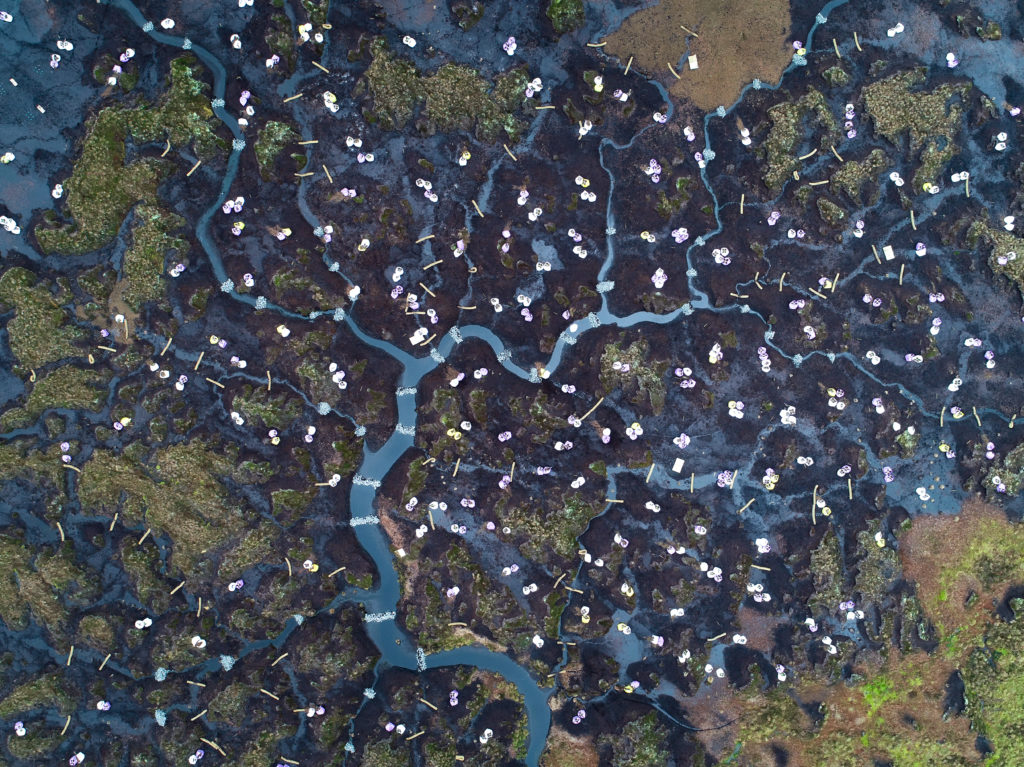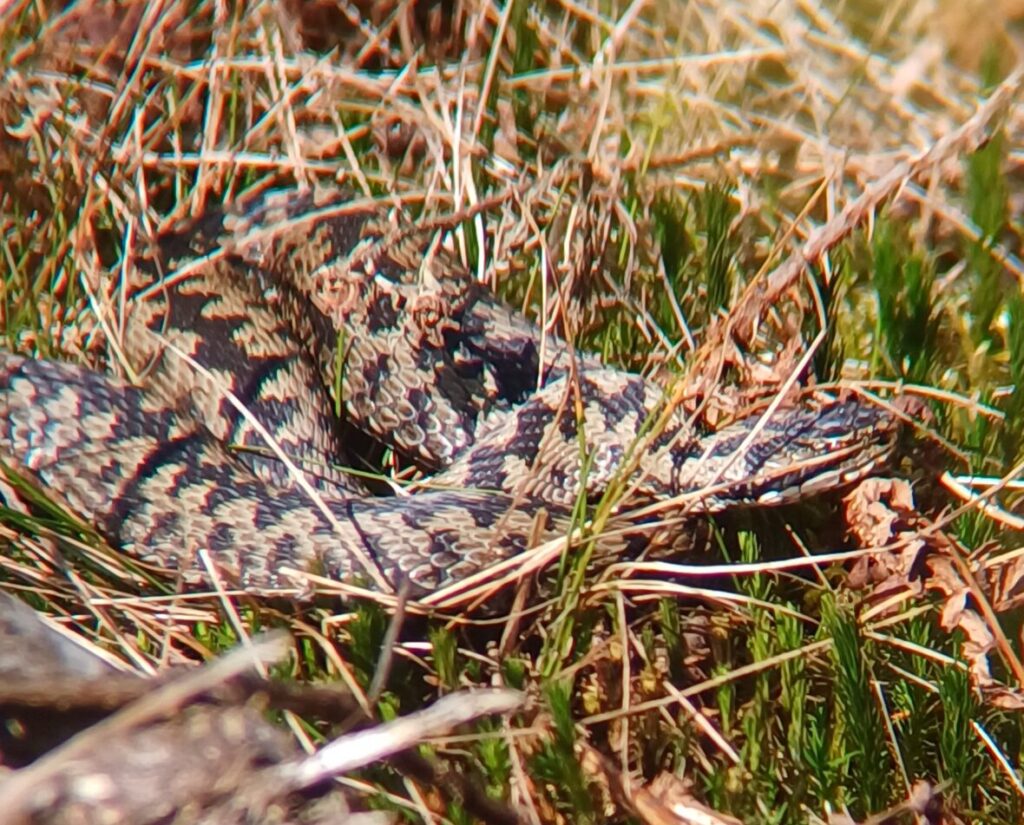What’s special?
Whin Sill
The Whin Sill is one of the special geological features of the North Pennines and forms some of the area’s most dramatic landscapes.
Molten origins
The hard, dark rock of the Whin Sill was once molten, but now stands out as spectacular cliffs and waterfalls in Teesdale and on the North Pennine escarpment.
The Whin Sill formed 295 million years ago when stretching of the Earth’s crust caused molten rock, or magma, at over 1000°C to rise up from deep within the Earth. It didn’t reach the surface but was injected between layers of limestone, shale and sandstone. The magma cooled and solidified underground to form the Whin Sill – a vast sheet of rock up to 80m thick, which lies beneath much of north-east England. After millions of years of erosion the Whin Sill is now partly exposed at the surface.
Crystals and columns
The Whin Sill is made of a hard, dark, crystalline rock called dolerite (known locally as whinstone), which is mainly composed of the minerals pyroxene and feldspar. As it cooled, the Whin Sill contracted, producing vertical cracks along which the rock breaks into rough columns. This is a distinctive feature of most Whin Sill outcrops.
The original sill
The name ‘Whin Sill’ was first used by local quarrymen. To them ‘whin’ was a hard dark rock, and ‘sill’ was a term for a flat-lying layer of rock. Geologists who studied the Whin Sill in the 19th century recognised its molten origins and the term ‘sill’ was adopted for all similar bodies of igneous rock. The Whin Sill is thus the original sill of geological science and is well known to geologists worldwide.
Baked rocks and special plants
When the Whin Sill was molten, its great heat baked and altered the surrounding rocks. Limestone turned into a distinctive white crystalline marble, known as Sugar Limestone. This unusual rock is a special feature of parts of Upper Teesdale, where it supports the unique ‘Teesdale Assemblage’ of arctic-alpine plants, including the beautiful spring gentian.


